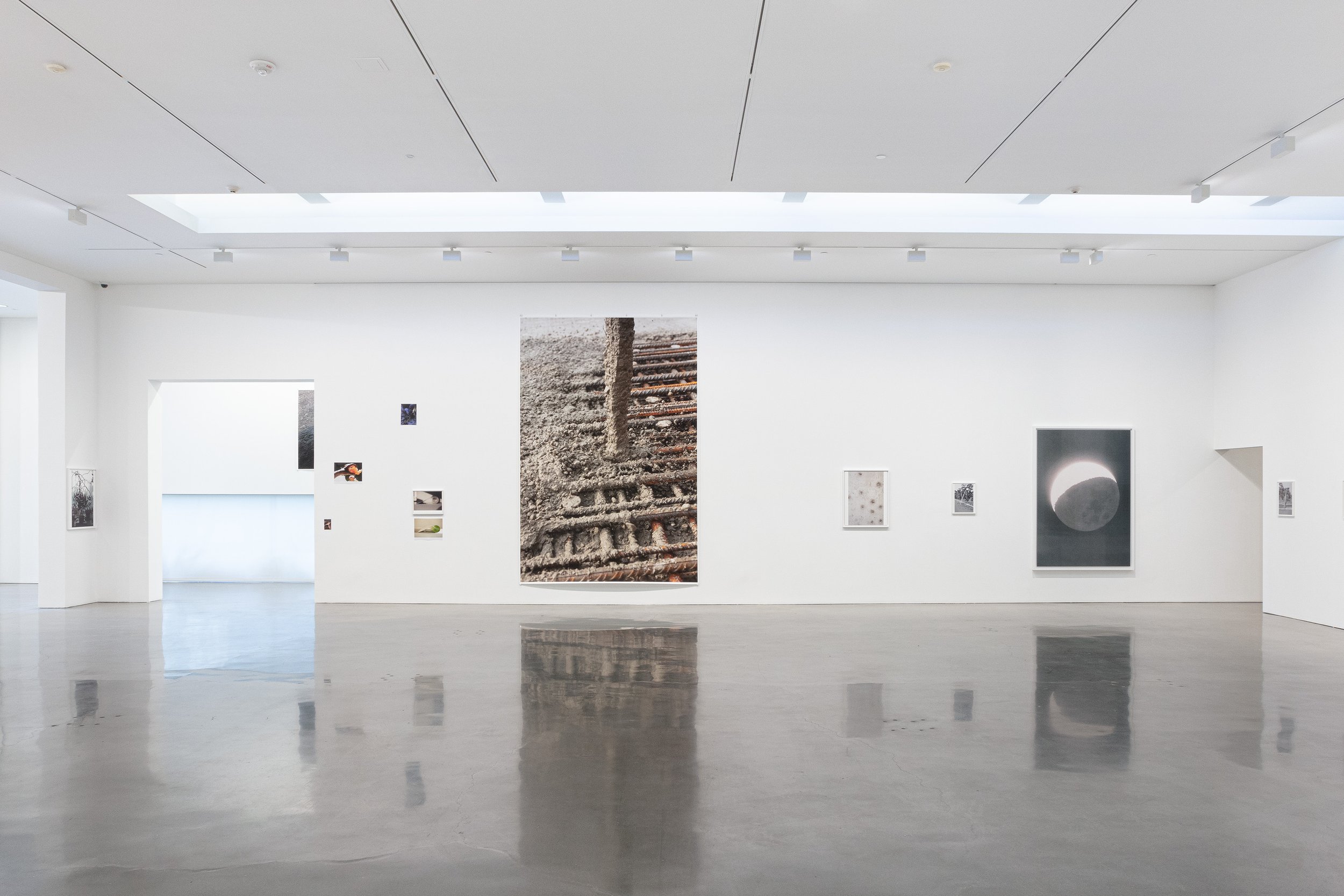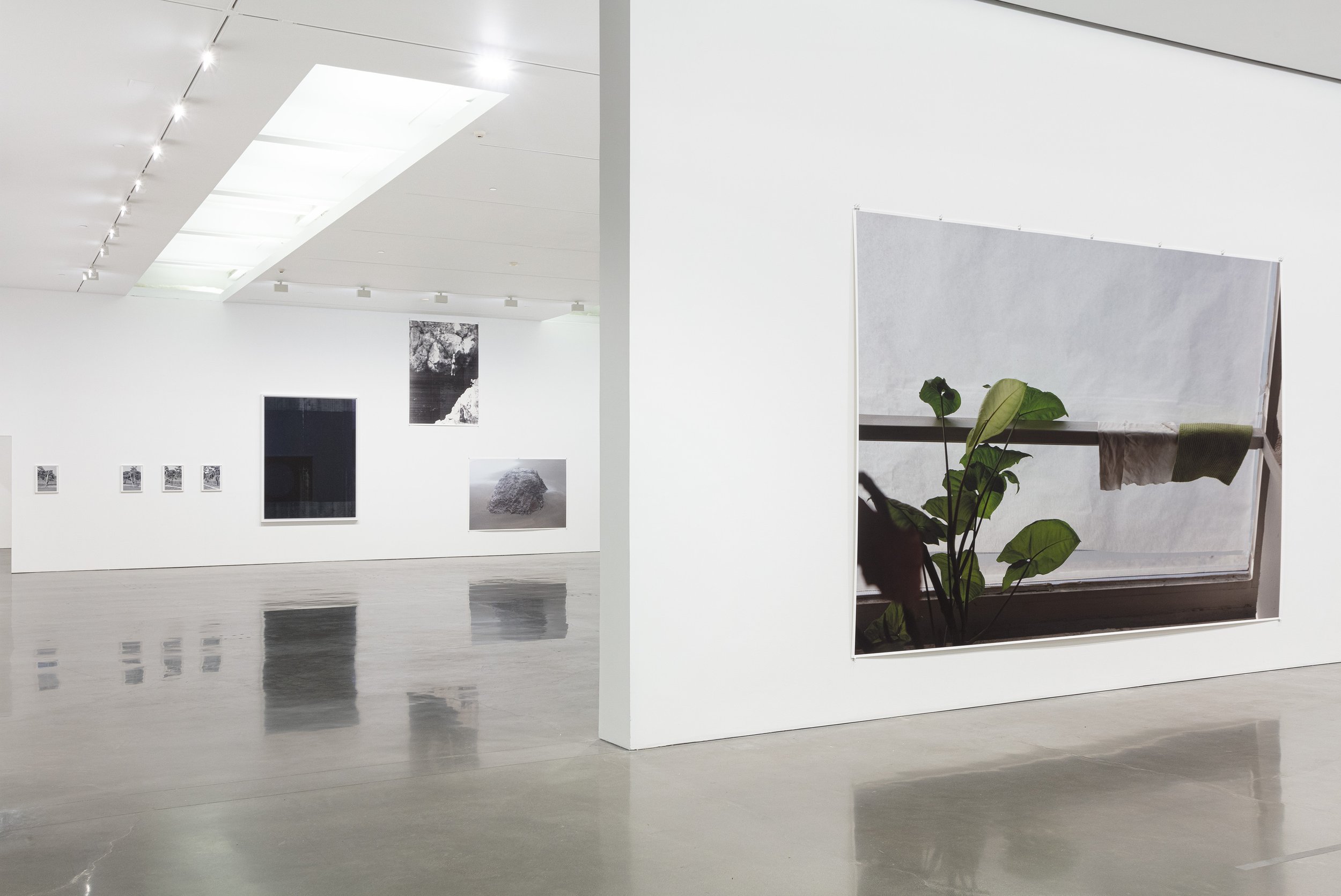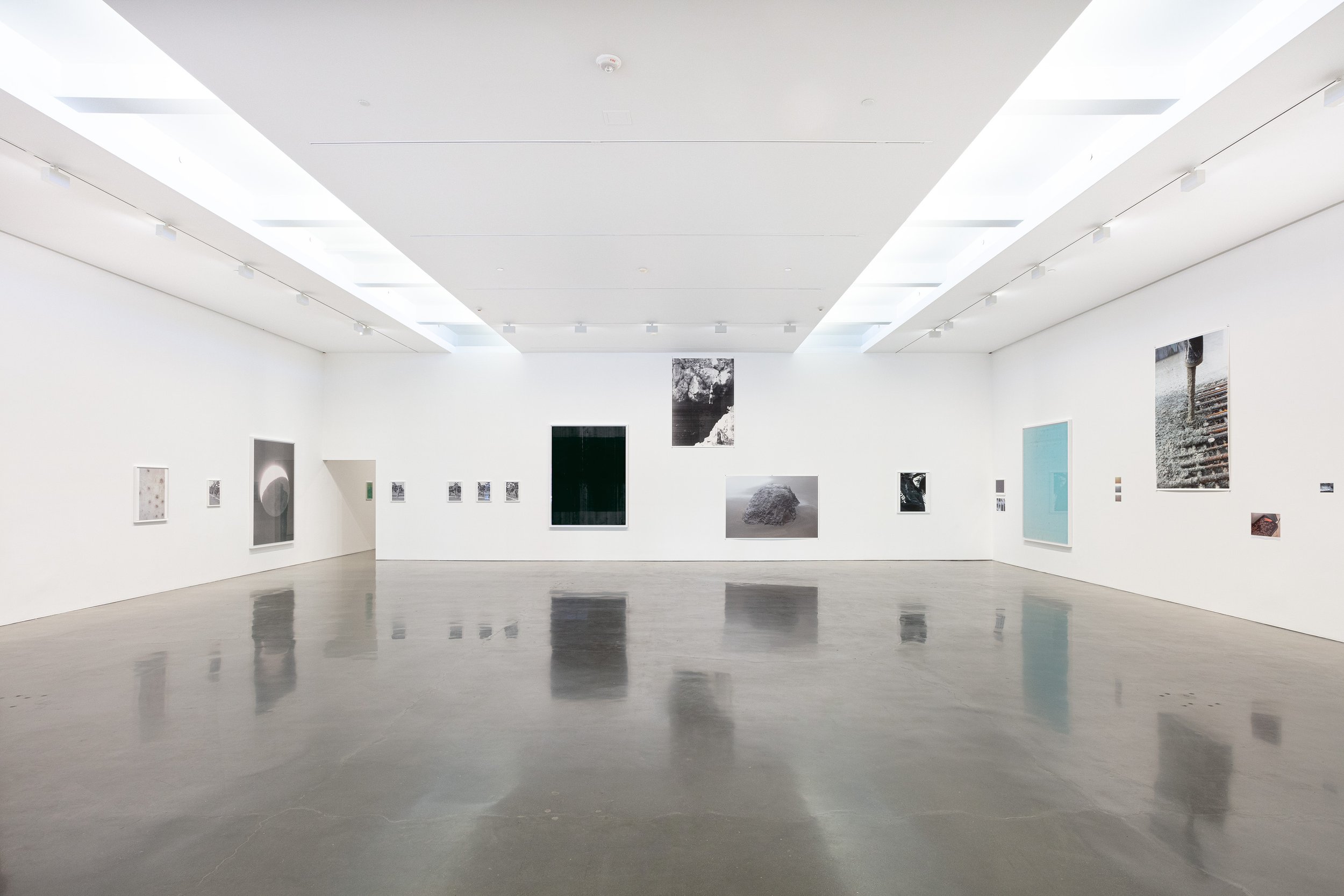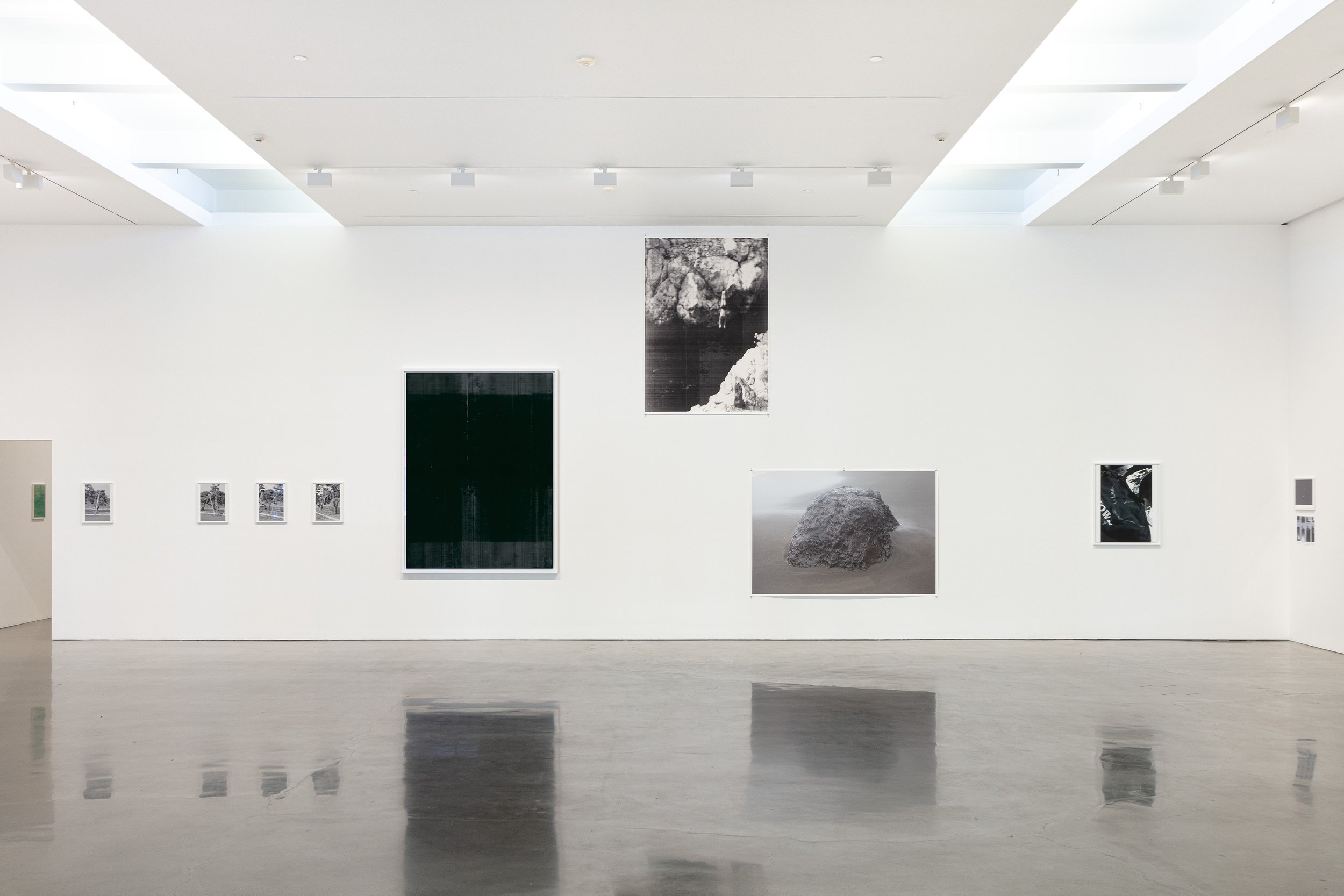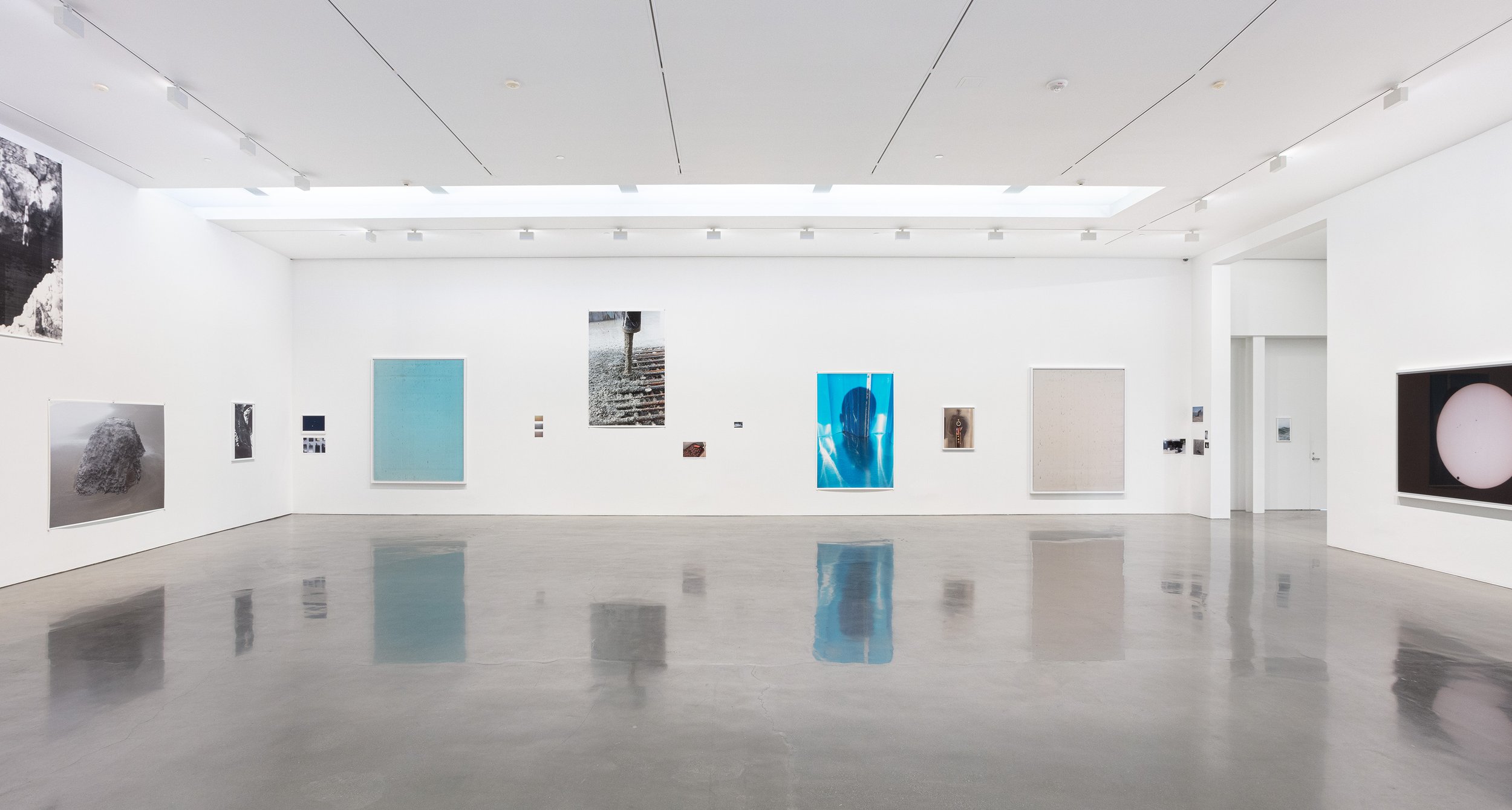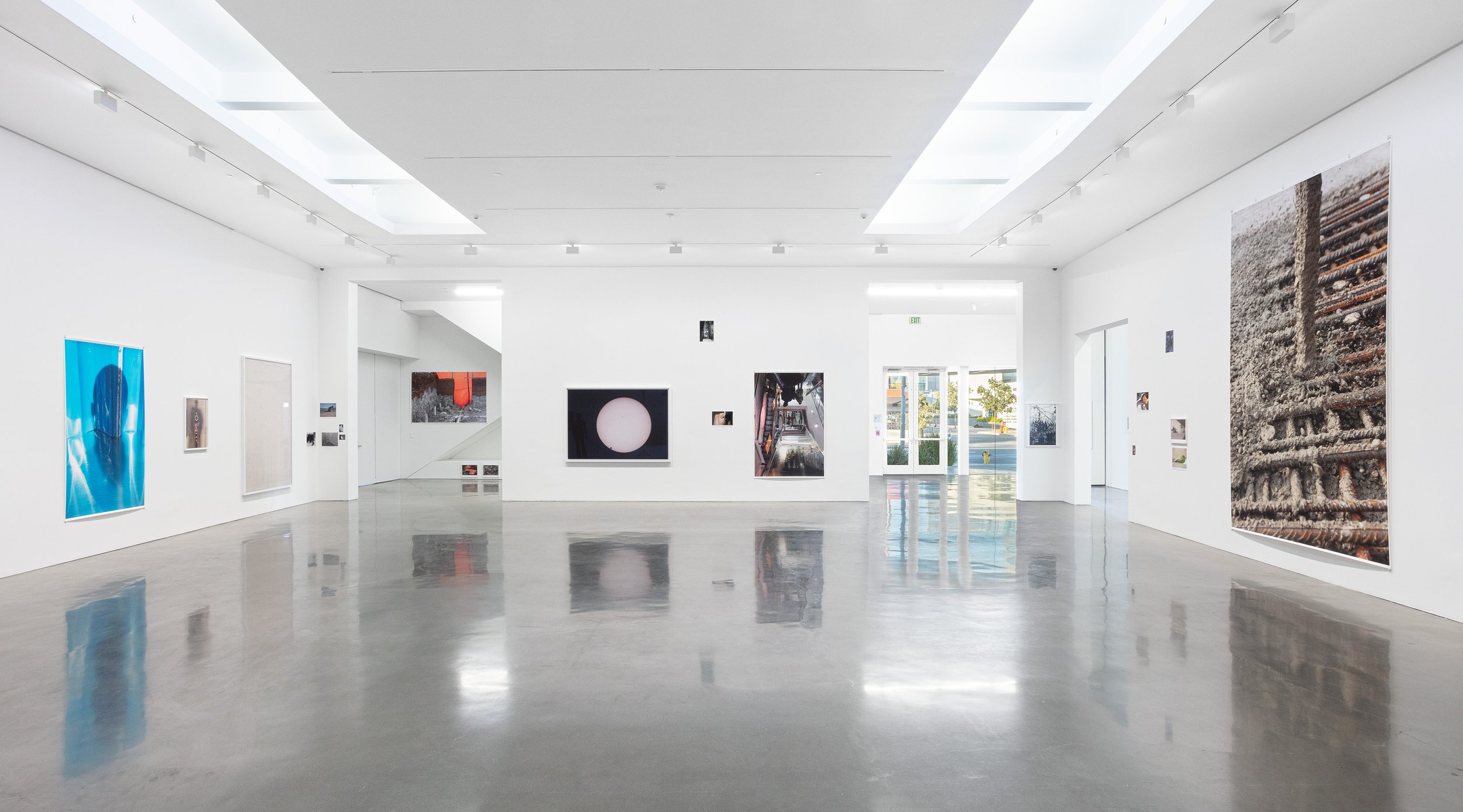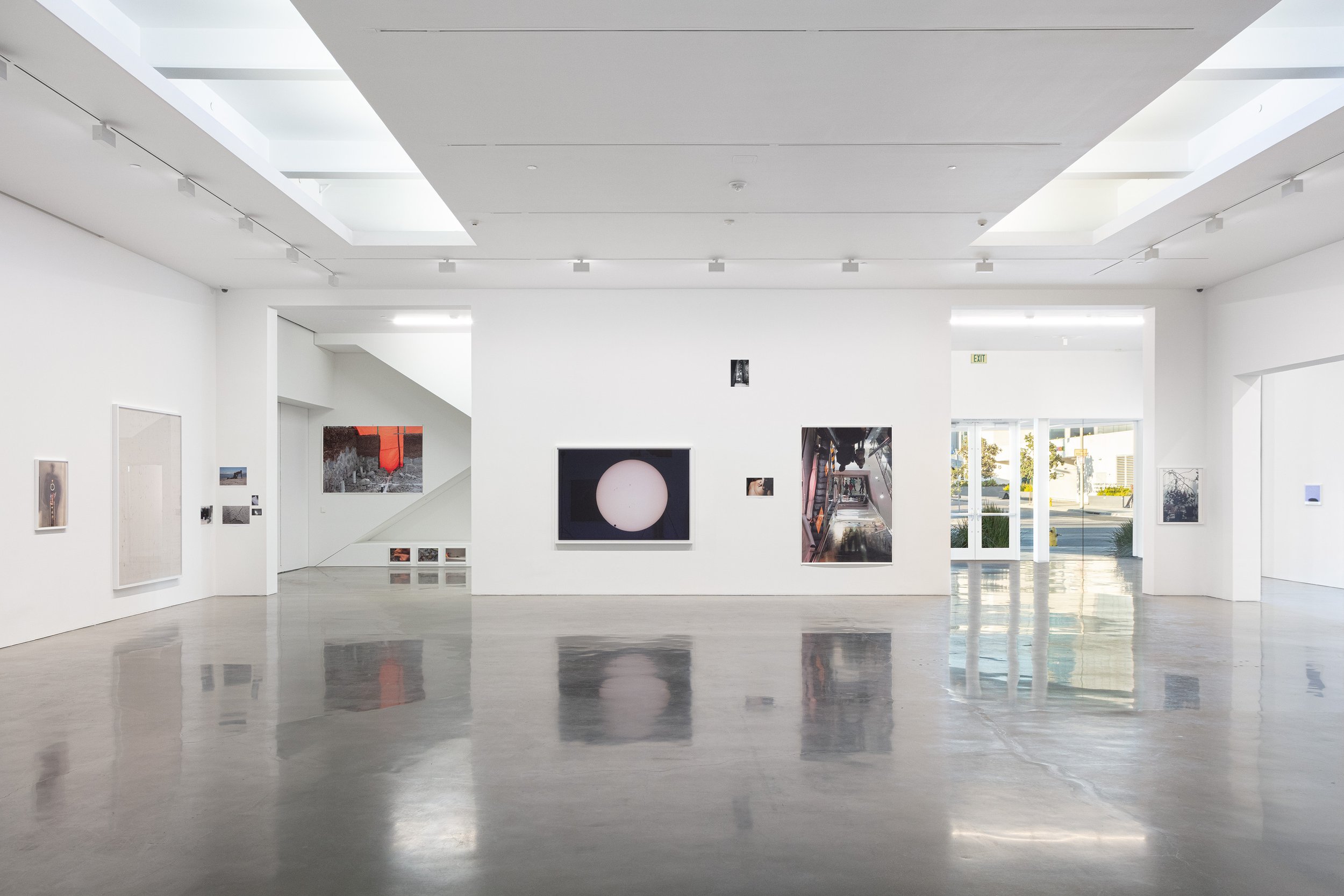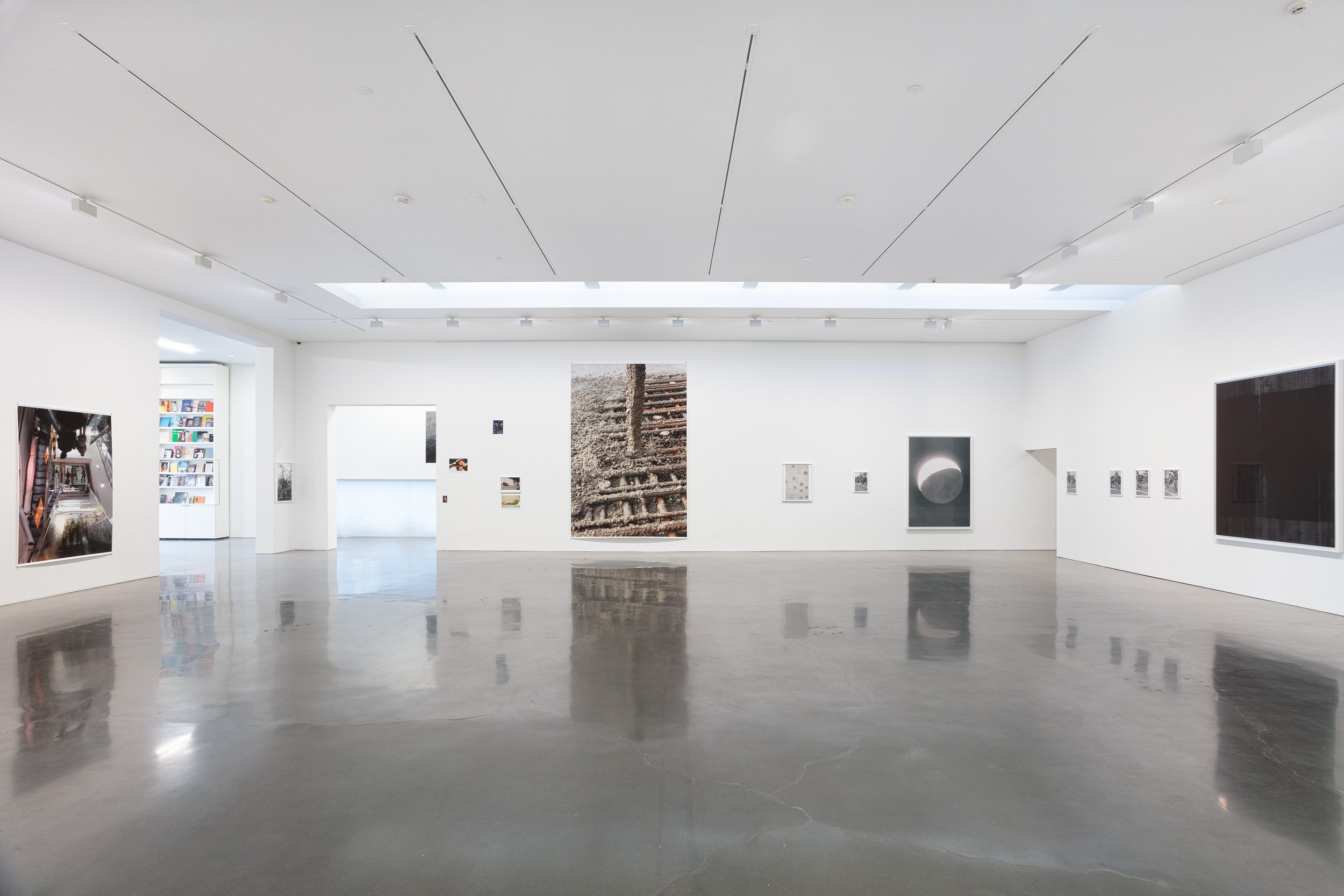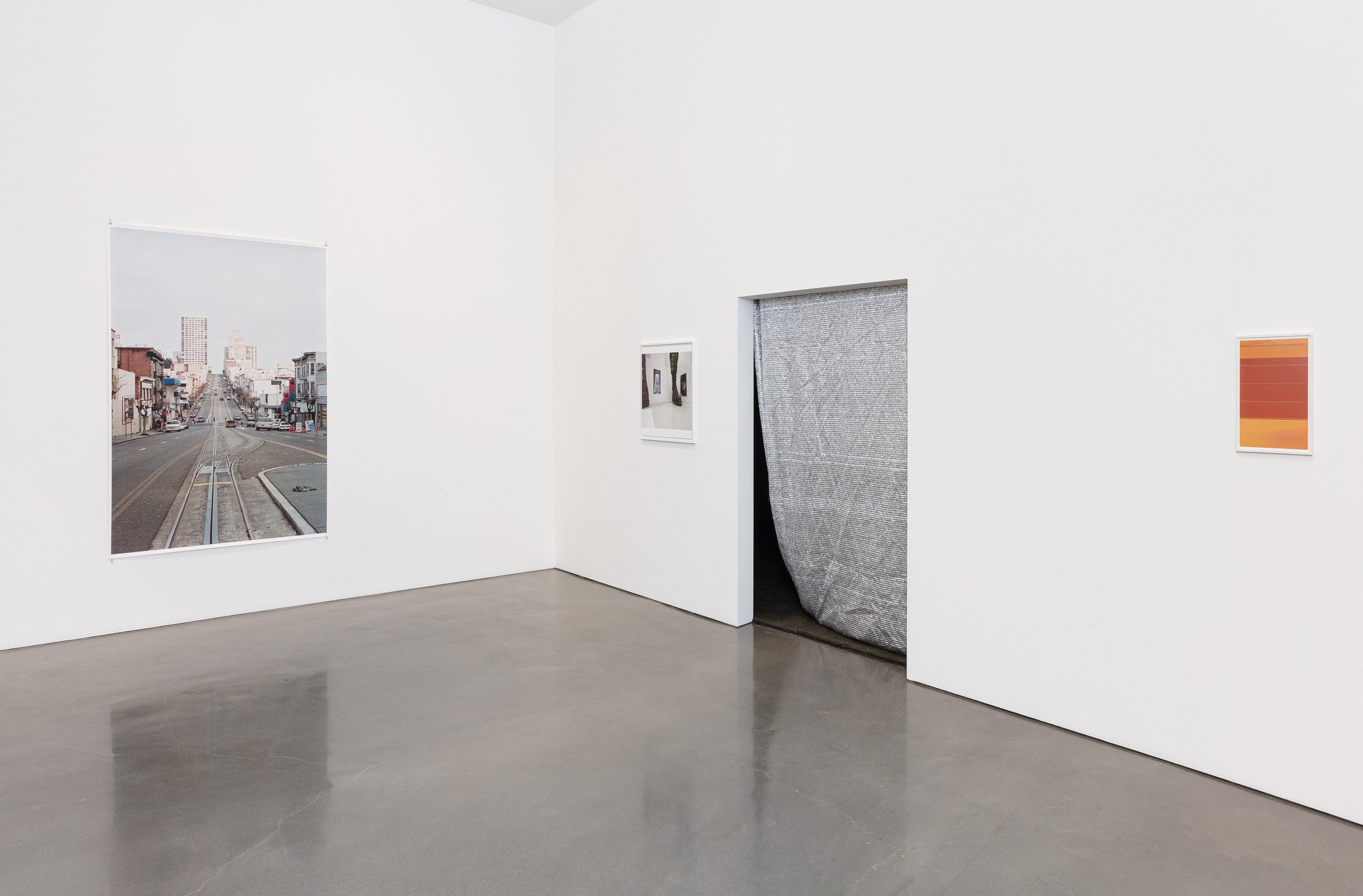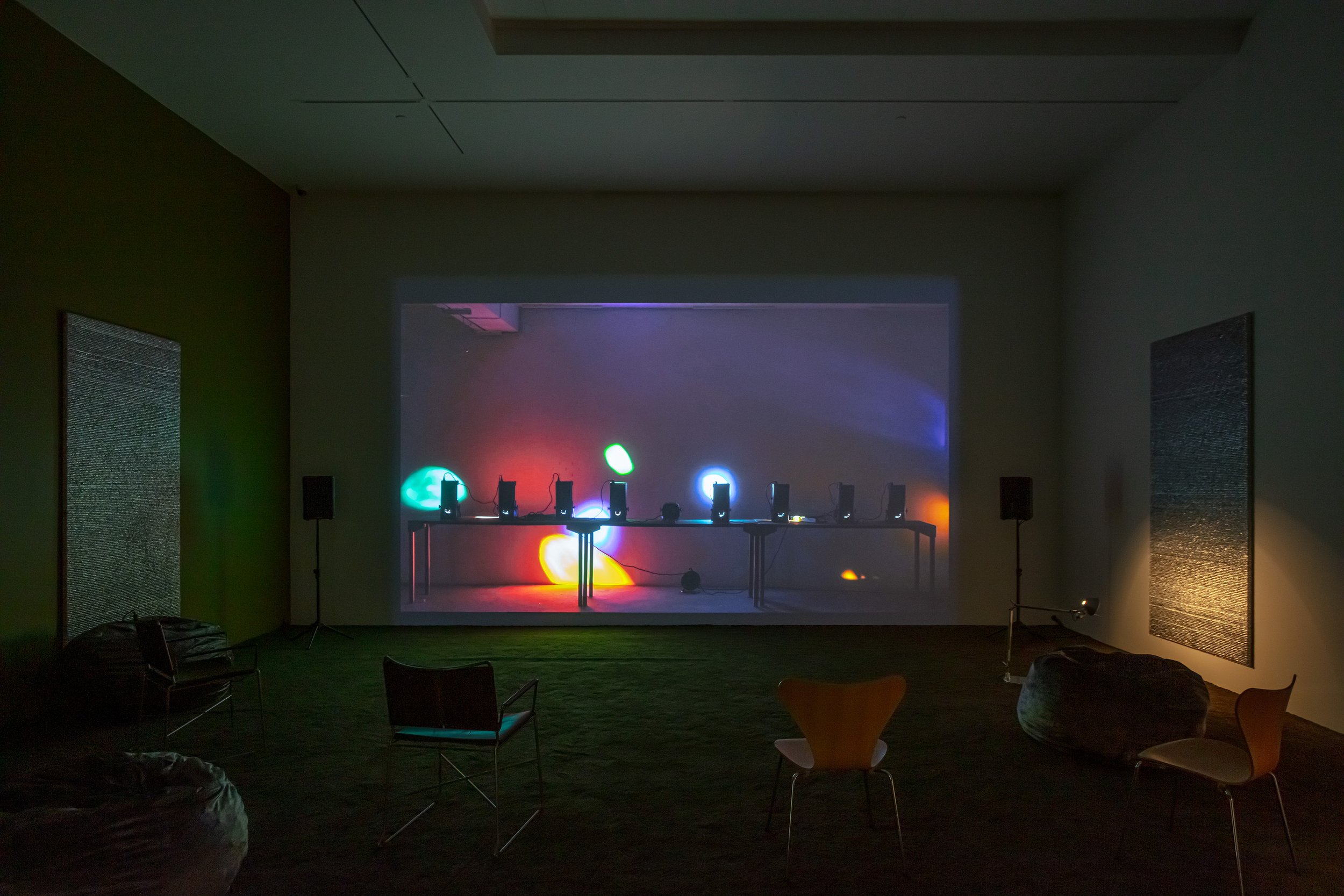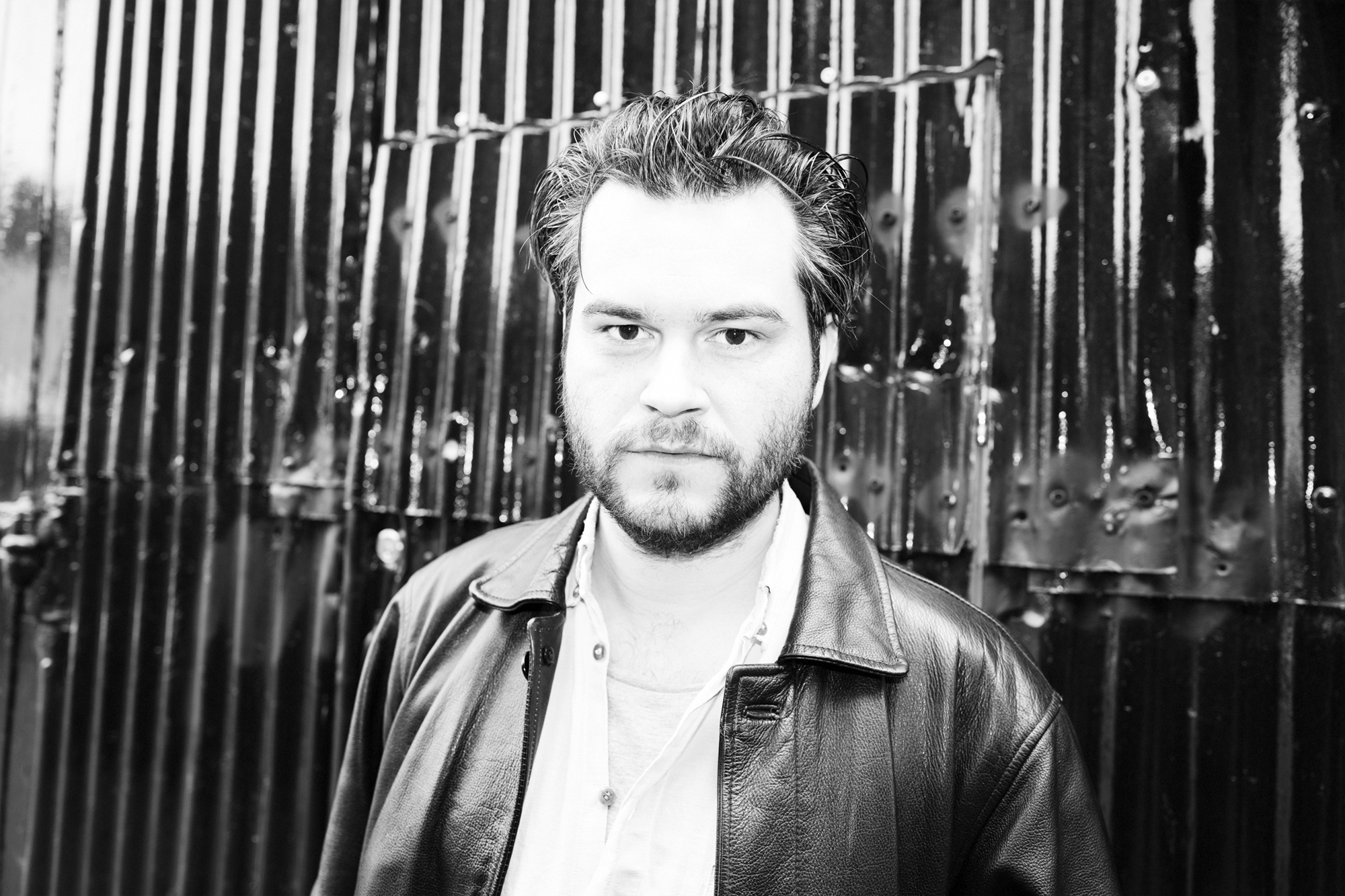In an exclusive interview and photoshoot for Autre, Anarchist Sound System a.k.a. Lou Desamaison-Cognet, musician and founder of Golpe Civil, unveils the complexities of modern society, critiquing a world immersed in electroslavery. Lou a.k.a. Loucifer shares insights into his own psyche as well as inspirations for his collective: from his collection of Nietzsche texts and the occult, to the visceral impact of recent love, loss, and sobriety. Read more.
Wolfgang Tillmans "Concrete Column" @ Regen Projects In Los Angeles
Installation view of Wolfgang Tillmans Concrete Column at Regen Projects, Los Angeles November 6 – December 23, 2021. Photo: Evan Bedford, Courtesy Regen Projects, Los Angeles
German artist Wolfgang Tillmans is arguably one of the most important photographers of the past thirty years. But what many people don’t know is that his musical ambitions are what led to his career as a fine art photographer who captured the ecstatic decadence of youth culture with a serious and discerning eye. On view now at Regen Projects in Los Angeles, an exhibition entitled Concrete Column focuses on some of Tillmans’ most recognized body of work, along with new photographs, and a dedicated listening room for his first full-length album Moon In Earth Light. The album, a collection of spoken word, field recordings, and pulsating electronic beats, is a culmination of a life long obsession with music and music making. Below is an excerpt from a conversation between writer and musician, Sasha Frere-Jones, and Wolfgang Tillmans on the occasion of his current exhibition in Los Angeles that will be published in full in an upcoming print issue of Autre. Concrete Column will be on view until December 23 at Regen Projects.
SASHA FRERE-JONES How long did it take to make the new record?
WOLFGANG TILLMANS Some of the first bits are four-years-old. The lockdown was kind of productive because the musician I work with, Tim Knapp, his studio is on the same street as mine. And we were able to use time very fruitfully. Otherwise it's been sort of a process over two, three years. But then in the last few months it came together within a couple of weeks—this composition of the eighteen elements that make up the album. It was a bit of a full circle moment from when I started to make music again around 2015. I had collected an archive of field recordings that I've been doing over the previous five years, which I had sort of just stocked up because I saw them as audio photographs, photographing sound. But I never really had time, or peace and quiet, to do something about it. And then I finally committed time to it, and put together these different sources, from spoken word to field recordings and jams and proper studio productions.
FRERE-JONES Do you just open up a particular machine and start singing or how—what’s your way of composing? What's your way of putting this stuff down?
TILLMANS It usually starts with a word or words, a line, and a melody that comes with it. For example, “Device Control,” the song that made it onto Frank ocean's Endless album, I recorded it in one take on an iPhone in one morning, slightly hungover. I had mused and thought about the new technology and sort of weird transfer—this shift from living life to broadcasting life for some time. But then one morning these words just came out and that happens sometimes with sentences that stayed with me over decades. For example, the line, “We can't escape into space, we're in it." And the other line is, “He wants to change, but not be seen changing." That's something that sort of stayed with me all my life. It's about myself, but it's about seeing others as well. But I work with a sort of notes that in sessions become a particular melody. So it always usually starts with a melody, a vocal melody, and a line. I don’t always get the verse so often— more the hook only [laughs].
FRERE-JONES You know, people don't have a lot of time now, the hook is all they want. I'm really curious about your whole journey. I’m somebody who does two things. I make music and I write. I’m not saying you only do two things, but I know you have a specific history of making music. You started pretty young if I'm not mistaken, is that correct?
TILLMANS Yeah, there was a short year and a half, two years, when I was seventeen to nineteen, which is when I was very productive with some songs, which I actually then later put them out in 2016. But we never performed, we never did anything. And I stopped for 25 years.
FRERE-JONES What kind of stuff was it?
TILLMANS It was 1985, so various electronic, post punk, new wave, pre-house. This was right before house music hit.
FRERE-JONES Was there somebody you wanted to emulate or you wanted to be, or you wanted to play like? Who were your heroes?
TILLMANS I mean, clearly, Soft Cell and New Order, and Pet Shop Boys and Psychedelic Furs. I always had a strong affinity to two poles: the more serious electronic, industrial, stuff. And on the other hand, Italo Disco, which was a genre that is nowadays held in great esteem, and consider one of the coolest things, but not then.
FRERE-JONES I'm also curious about—where were you hearing this stuff? What was the mood where you grew up? Was that the popular music? Was it the unpopular music and all the kids were all listening to something else?
TILLMANS In the mid-80s, there was still a very large divide between serious guitar music made by hand and electronic music that was considered not so serious because it's easy to make. Currently, it's only pressing a few buttons. It seems ridiculous nowadays that there was such value value system applied. But I was from a medium, small industrial city in the larger area of the Ruhr in Germany, near Cologne and Düsseldorf, which is an area of rich culture and musical history. Kraftwerk are from Düsseldorf and Karlheinz Stockhausen is from Cologne. And a lot of English bands would come through the area to play. So I feel really blessed by having grown up in, at that time in that neighborhood where Sigmar Polke, Joseph Beuys, and lots of great artists were just living and working. I was a little bit too young for that, but when I left the Rhineland and moved to Hamburg after school I found myself, for the first time, old enough and actually located near enough to a burgeoning scene, which was a house scene, acid house music. That was a tectonic shift, definitely in Europe music. To a lesser extent, all across America, but it also had a huge impact in the big cities.
FRERE-JONES Is that when you made those first recordings?
TILLMANS I did at them in my hometown, which was before Hamburg.
FRERE-JONES I think we all have our, we all have our ideal cities when we’re young. Wherever it is, it’s not where we are.
TILLMANS I once had an assistant in Berlin who was born on Tottenham Court in London, the street where I first saw Boy George and Culture Club play when I was 15. And I thought like, wow, it must have been so incredible to be born in the West End. Or I had an assistant who was born 200 meters from Alexanderplatz in Berlin. I mean, I find it glamorous in itself, but on the other hand, I don't, I don't envy them because they never had this sort of imaginary space, this place to project into, because they come from a place where other people project their dreams and ambitions to.
FRERE-JONES But you stopped for 20 years—why did you stop?
TILLMANS Because my musical partner, surprisingly, left literally overnight. There was some personal drama with his girlfriend and he literally just left. I didn't muster up the courage to find somebody else to work with. But then I was in Hamburg and wanted to capture the energy of this newfound solidarity and democracy on the dance floor. It had a very egalitarian spirit and that totally inspired me. I wanted to communicate that and communicating that meant preserving it in pictures. And that’s when I took my first editorial photographs.
The Natives Are Restless: Read Our Interview With Enigmatic London-Based Electronic Music Producer James B. Stringer, AKA Brood Ma →
Brood Ma is James Stringer, a London by way of Kent-based producer and graphic artist. He first gained interest in music through heavy metal, and a predilection towards extremity still seems to hold a place in his musical identity. He got serious about music after dropping out of Central Saint Martins where he was studying visual art. His first output was more in the realm of noise, but eventually took on form, beat, and rhythm to emerge as the experimental dance project that now defines Brood Ma. Click here to read more.
FRIDAY PLAYLIST: Take A Moment To Dig Deep Into Your Soul With A Playlist Inspired By Arca's New Album, Mutant, A New Aesthetic In Electronic Music →
Click here to listen

